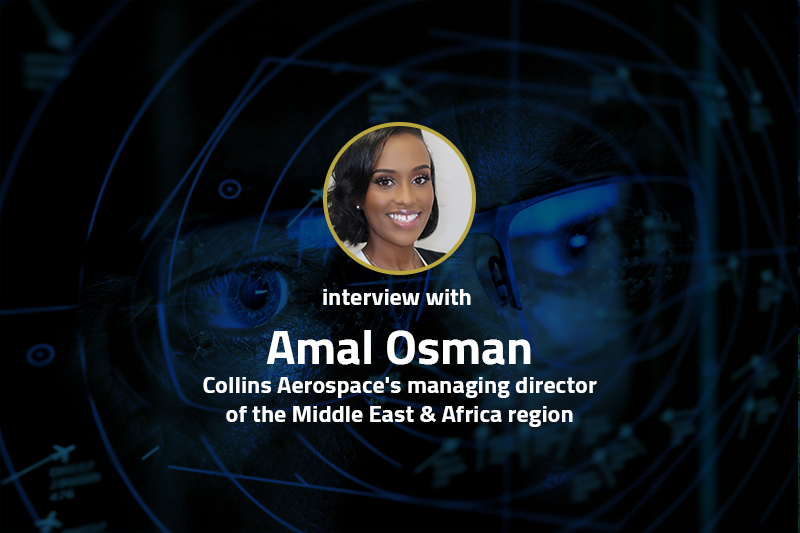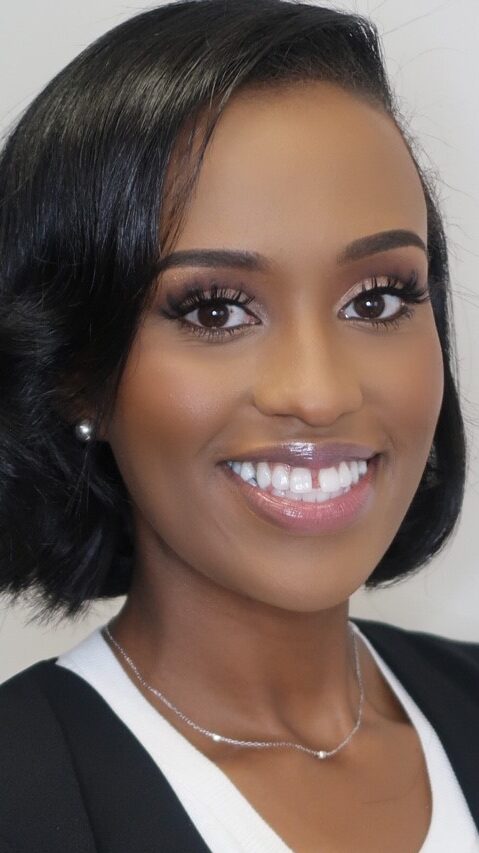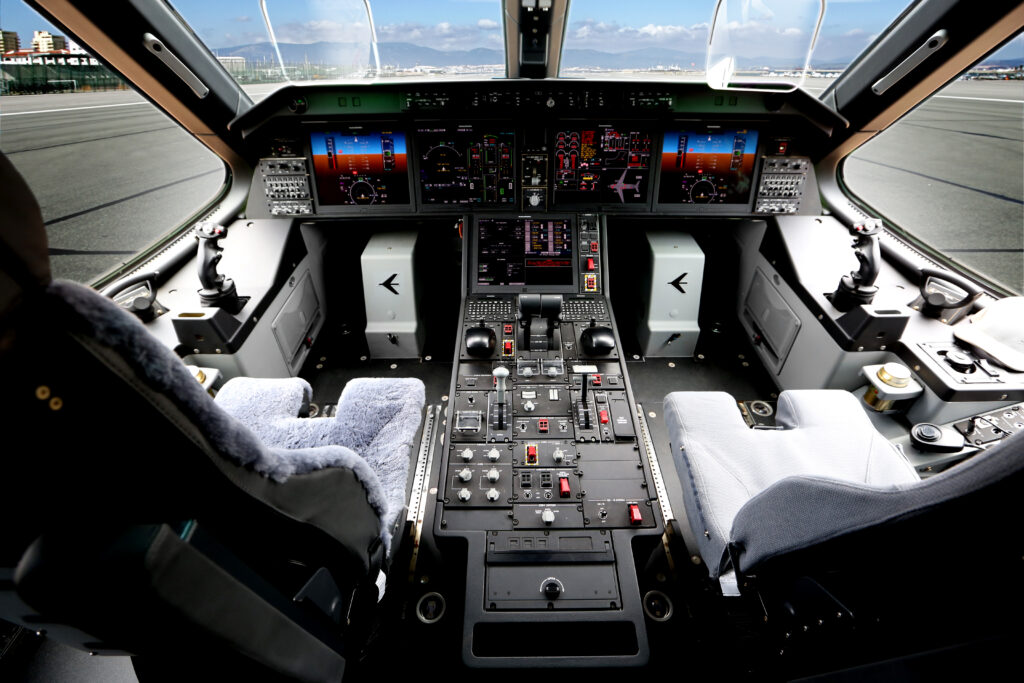
In this interview – Amal Osman, Collins Aerospace’s managing director of the Middle East & Africa region, touches on the challenges of the industry and the company’s plans.

– Collins Aerospace is not new to the Middle East, what is the strategy to increase the company’s presence in the Gulf and penetrate new markets?
Collins Aerospace has been established in the Middle East and North Africa for decades, providing a complete range of aerospace and defense solutions for ministries of defense, integrators, aircraft manufacturers, airlines and other customers. Our presence in the Kingdom of Saudi Arabia includes a facility in Riyadh and offices at the Royal Saudi Air Force (RSAF) headquarters.
To help expand our presence, Collins is fostering an indigenous aerospace & defense industry for the nation’s economic diversification and the development of a highly skilled, highly productive national workforce.
In support of this, we are actively engaged with the regional manufacturing and supplier eco-system to partner locally, contribute to supplier jobs and help strengthen industrial capabilities and diversify the nation’s economy.
We are also committed to supporting and enriching Middle East communities by providing science, technology, engineering and mathematics (STEM) educational opportunities and investing in the local workforce.
– How does Collins Aerospace adjust its products to the demand, climate and environment of Middle Eastern countries?
Our commitment to working within the Middle East reflects our shared values and a mutual desire to grow business in support of the region’s economic, defense and aerospace ambitions.
We’re demonstrating this via our participation as a founding member of the Aviation X Lab – a unique, long-term collaboration with Airbus, Emirates Airlines, and a few other companies focused on delivering the next era of air travel.
Collins is also working with the regional defense ecosystem to collaborate on new defense product offerings and to provide maintenance, repair, and overhaul (MRO) services across several systems for several types of military aircraft. Ensuring that our capabilities, and offerings enable our customers to have a more informed, and effective armed forces.
– What are the current plans of actions to keep the company’s growth going for the next five years?
We are looking forward to expanding our local capabilities in the Kingdom as we continue to grow and support the implementation of Vision 2030. We believe it’s our role – and responsibility – to help customers in their vision for economic diversification.
As part of Collins’ commitment to help strengthen the industrial capabilities of the regional defense and aerospace industry in this strategic market, the company is investing in a number of partnership agreements in the region.
Key to any future growth plans is our ongoing commitment to help our industry advocate for a more sustainable future for everyone. That’s why we are pursuing – with and for our customers – alternative and renewable energy technologies and ways of doing business that reduce fuel burn, emissions and costs.

– Is there any cooperation with presently well-known Arab company?
Collins Aerospace has a long history of partnerships in KSA. We have partnered extensively with AEC for production and assembly of avionics displays and communication systems for several platforms used in the Kingdom. We have also partnered to establish local MRO capabilities for military applications.
We made two recent announcements regarding plans to further expand our local capabilities in the Kingdom.
First is our new agreement with Taqnia, a Saudi Arabian Technology Development and Investment Company, that was announced at the Dubai Airshow. Through this arrangement, Collins and Taqnia will expand Collins’ ACARS coverage on the Saudi Arabian Peninsula. Taqnia will oversee ground station deployment at suitable locations across Saudi Arabia to close the current geographical gap in coverage.
Second is our agreement with Shamis Technologies and Eraf Industrial Company to join a consortium to develop a tactical command & control ground vehicle. Just announced this February, our three companies will work with Navistair Defense and Kratos Defense & Security Solutions. Built in KSA, the vehicle will be showcased for first time at WDS. Specifically, Collins will provide software solutions to develop an ISR ground station based on Collins Sci-Toolset. The ability to visualize, exploit and share key data points in the ever-growing amount of information and data across domains is now a key enabler to military and security operations.
– What goals do you have for your company and what challenges will you have to overcome?
Following the merger between Raytheon and the aerospace businesses of United Technologies in April of 2020, we’ve been presented with new opportunities in terms of technology synergies and channels to market from the other Raytheon Technology companies
As we look out over the next 3-5 years, Collins, as part of Raytheon Technologies, will play an important role in transforming the company. RTX is looking to remove long-term structural cost, align our operating systems to improve program performance, share technologies across product lines, and modernize our facilities to take advantage of the next-generation of advanced digital engineering and industry 4.0 technologies. This focus on operational excellence will ensure we’re delivering the best possible products and solutions to our customers.
Under the RTX umbrella, we’re able to amplify our commitment to the “Saudi Vision 2030” for economic diversification, develop new partnerships and train local talent to strengthen our presence. Our combined companies are serving customers worldwide, including in the KSA and the Middle East, through a platform-agnostic, diversified portfolio of industry-leading businesses.
And no discussion of future challenges would be complete without acknowledging the vast amount of work our industry needs to do to address climate change and achieve the goals the wider global aviation community committed to in 2008: 1) Improving the fuel efficiency of the global feet by 1.5 percent per year from 2010 to 2020; 2) Stabilizing CO2 emissions from 2020 with carbon-neutral growth; and 3) Reducing net CO2 emissions from 50 percent by 2050 compared to 2005 levels.
Collins recently joined an industry-wide commitment to achieve net zero air transport carbon emissions by 2050 in a declaration released by Air Transport Action Group (ATAG). The focus for aviation manufacturers is on enabling future efficiency improvements in support of the industry’s long-term carbon reduction target.
– Can you tell us about Collins Aerospace’s participation in the WDS 2022? What are the objectives and expected results?
We are excited to participate in the first edition of WDS in KSA. For our customers, we want to showcase how the breadth and depth of our experience can help them solve their immediate challenges, while preparing them for the future needs of the industry and the marketplace.
In general, we want to continually position Collins as an industry leader in redefining aerospace and defense toward a more connected, efficient and sustainable future, while building on our existing brand recognition in KSA. Ideally, we’d like participants at WDS 2022 to view Collins Aerospace as a partner of choice to provide more intelligent solutions for the mission.

– What is it that you are showcasing at WDS this year?
Collins Aerospace will be showcasing a number of our advanced defense systems at WDS. These include:
Advanced C4IS solutions:
- Connectivity is vitally important in KSA and we are focused on providing open-system, interoperable, scalable solutions to enable all-domain command and control of the battlespace in an increasingly complex threat environment. The more connected our service members are, the better decisions they can make – whether threats originate from the air, ground, sea, or space.
- Intelligence, Surveillance and Reconnaissance (ISR) sensors and pods for manned and unmanned platforms along with a complete range of image exploitation options to complement the airborne systems.
- Collins is introducing to the region its latest generation MS-110 multi-spectral reconnaissance system, which is a follow-on to the widely deployed DB-110, as well as a new TacSAR radar pod which complements the MS-110.
- Collins offers communications, navigation and surveillance systems on several military platforms in use in the Kingdom including, but not limited to, F-15, Hawk, C-130 and Blackhawks.
Enhanced platforms:
- Collins will exhibit its latest avionics solutions, Pro Line Fusion, for the new C-390 military transport aircraft, presented for the first time in KSA. With Pro Line Fusion, military operators can perform demanding missions while complying with civil mandates.
- Collins has solutions to extend the life of military platforms in operational conditions, such as the versatile C-130 Hercules. Nearly 200 C-130 Hercules have been operated by Middle East air forces since the first was delivered in the early 60’s. Today, several air forces in the region are still operating the aircraft and the RSAF operates the biggest fleet outside of the US.
- Collins offers more than 21 solutions for retrofit modifications to help operators modernize their current C-130 aircraft, including upgrades for wheels and brakes, propellers, avionics (cockpit and EVS), seating, mission equipment, and ground systems and support.
- Collins Aerospace is also introducing next generation ACES 5 ejection seats to upgrade legacy ACES II seats on F-15 and F-16 fleets. ACES 5 features enhanced head, neck, arm and leg flail prevention, in addition to a load-compensating catapult based on the occupant’s weight. ACES 5 reduces overall ejection-related major injuries to less than 5 percent and ejection-related spinal injuries to less than 1 percent.
– What do you feel is the biggest strength of Collins Aerospace right now?
Collins Aerospace has had a singular mission since day one: to redefine aerospace. It’s what we do each day, across every business, in every region, to break through the status quo, spark innovation and deliver for our customers. Our path forward centers around key strategic areas of focus, with each part of our business contributing its engineering and manufacturing expertise to create breakthrough technologies and capabilities that can transform our industry. Inside Collins, we’re thinking about these breakthrough technologies in terms of Seven Strategic Initiatives: Advanced Structures, Electrified Aircraft, Autonomous Operations, Cabin Experience, Connected Aviation Ecosystem, Connected Battlespace and Integrated Solutions.
Across the board, our ability to provide both military and commercial customers with integrated solutions that truly solve their problems may be our biggest strength right now – and made even more comprehensive following our merger with Raytheon’s businesses. Our ability to integrate new and existing processes, materials and technologies from across the enterprise sets us apart in the industry. It allows us to take a broad, borderless approach to problem-solving and deliver innovative solutions – such as new computing and power distribution backbones, power and thermal management solutions, and multi-function structures – that move beyond traditional system boundaries.

Be the first to comment